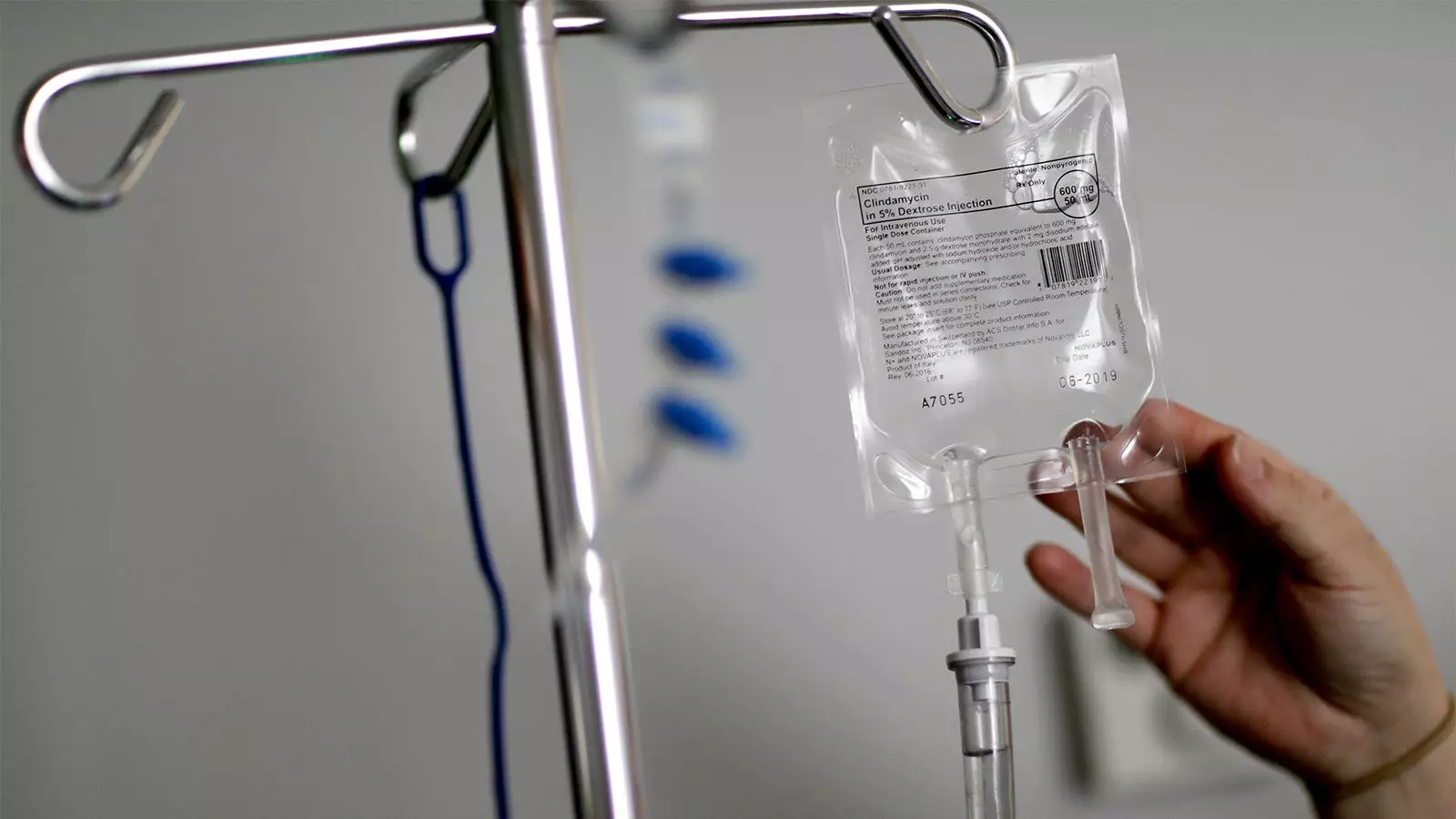As Hurricane Milton approaches the southeastern coast, federal officials and medical manufacturers are on high alert. The impending storm poses a significant threat to the already tenuous supply chain of critical hospital supplies, particularly intravenous (IV) fluids. This situation is exacerbated by the recent flooding at a major manufacturing facility in North Carolina, which damaged Baxter International’s plant—responsible for approximately 60% of the country’s sterile IV fluids. Hospitals across the nation are still grappling with the aftermath, unable to secure adequate supplies to support patient care.
B. Braun Medical, a key player in the IV fluid manufacturing arena, has taken proactive steps in anticipation of the hurricane’s arrival. The company has collaborated with U.S. health authorities to relocate its inventories of IV bags from its facility in Daytona Beach, Florida, which it temporarily closed as a precaution. This foresight may prove critical in mitigating the potential crisis posed by the storm.
U.S. hospitals rely heavily on IV bags, using over 2 million daily to administer treatments to patients. The supply disruption is not just a logistical concern; it poses a direct threat to patient care. As the ramifications of Hurricane Helene linger, some hospitals have begun implementing conservation measures to manage dwindling supplies, raising alarms among healthcare professionals who fear that the situation could escalate further.
Mike Ganio, PharmD, an authority on drug shortages with the American Society of Health-System Pharmacists, remarked on B. Braun’s timely preemptive actions, stating, “In this case, B. Braun had advance notice and was able to move all of their supply out of harm’s way.” This proactive approach stands in stark contrast to Baxter’s unanticipated predicament, highlighting the need for manufacturers to be more vigilant and prepared in the face of natural disasters.
Amid the growing crisis, the American Hospital Association has urged the Biden administration to take decisive action, advocating for a declaration of national emergency status. They recommend invoking defense production authorities to compel private companies to prioritize IV fluid production, emphasizing the gravity of the situation and the urgency for government intervention. In response, U.S. Health Secretary Xavier Becerra acknowledged the ongoing supply chain disruption while refraining from detailing specific emergency powers the government could leverage.
Significantly, Becerra indicated that the Department of Health and Human Services is contemplating a range of measures to tackle the ongoing challenges. These potential strategies include facilitating temporary imports of IV supplies from overseas, extending the expiration dates on current products, and identifying additional domestic plants capable of increasing production output. Similar tactics have previously been employed to rectify shortages of baby formula and other essential medical supplies during the COVID-19 pandemic, demonstrating that government intervention can be effective in swiftly addressing supply issues.
The Role of FDA and Hospital Preparedness
The FDA has also been closely monitoring the situation. In their communications, they noted that several types of IV fluids, such as saline solution, were already on their drug shortage list prior to Hurricane Helene’s impact. In response to these shortages, healthcare facilities and specialty pharmacies have the provision to compound their own formulations. This strategy can temporarily bridge the gap for critical patient needs, but it should not be seen as a long-term solution.
As hospitals navigate the complexities of this supply chain crisis, the importance of adaptability and preparation becomes apparent. The ability of facilities to collaborate with manufacturers, health agencies, and governmental bodies will ultimately determine their resilience and ability to provide necessary care during unprecedented challenges.
The events surrounding Hurricane Milton serve as a stark reminder of the vulnerabilities within the healthcare supply chain. With the storm threatening more disruptions, it is crucial that all stakeholders—from government agencies to manufacturers to healthcare providers—work cohesively to develop robust contingency plans.
Investing in greater resilience within supply chains, enhancing communication protocols in times of crisis, and ensuring that emergency measures can be readily accessed are essential steps that must be taken to fortify the healthcare system against future adversities. Only by taking these proactive measures can we hope to safeguard patient care in an increasingly unpredictable world.


Leave a Reply